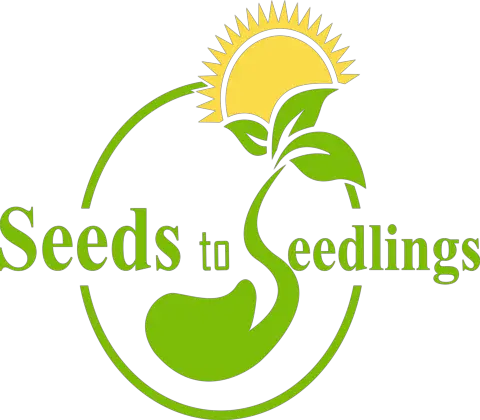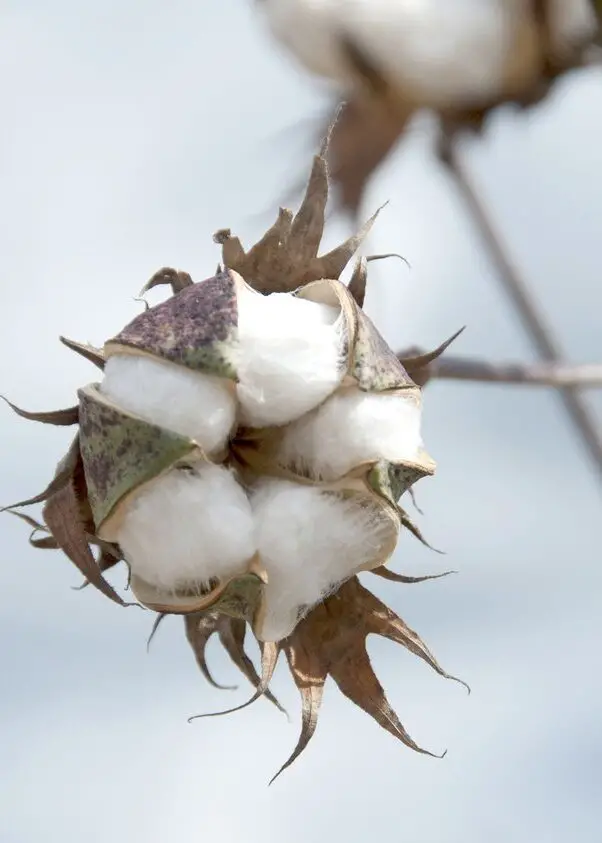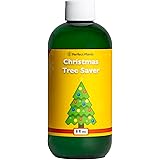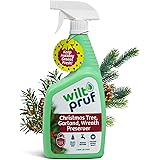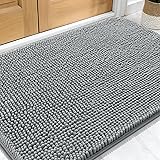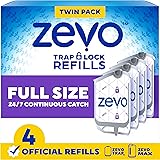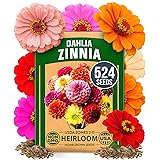Have you ever wondered if cotton plants have thorns? Well, the answer is yes! Contrary to the soft and fluffy cotton we’re familiar with, cotton plants actually have thorny stems. These thorns serve a purpose beyond just protection, they help the plant climb and support itself as it grows. So, if you’ve ever brushed against a cotton plant and experienced a prickly sensation, now you know why.
In this article, we’ll delve deeper into the world of cotton plants, exploring their thorny nature and uncovering fascinating facts along the way. So, let’s get started and satisfy your curiosity about “does cotton plants have thorns”.
Does Cotton Plants Have Thorns?
Cotton is one of the most widely cultivated crops in the world, primarily because of its importance in the textile industry. However, if you’ve ever come across a cotton plant or seen pictures of one, you may have wondered if these plants have thorns.
In this article, we will explore the fascinating world of cotton plants and answer the question of whether or not they have thorns.
The Anatomy of a Cotton Plant
To understand whether cotton plants have thorns, it’s important to familiarize ourselves with their anatomy.
A typical cotton plant consists of various parts, each serving a specific purpose in the plant’s growth and reproduction. Let’s take a closer look at these different components:
- Roots: The roots of a cotton plant grow beneath the soil’s surface and are responsible for absorbing water and nutrients.
- Stem: The stem provides support to the plant and helps transport water and nutrients from the roots to other parts of the plant.
- Leaves: Cotton plants have large, green leaves that play a crucial role in photosynthesis – the process by which plants convert sunlight into energy.
- Flowers: One of the most recognizable parts of a cotton plant is its flower. Cotton flowers come in various colors, including white, yellow, and pink. These flowers eventually develop into bolls, which contain the cotton fibers.
- Bolls: Bolls are the fruit of the cotton plant and are essentially capsules that protect the cotton fibers until they are ready to be harvested.
Now that we have an understanding of the different parts of a cotton plant, let’s explore whether or not they possess thorns.
Read More: About What To Do If Pricked By A Rose Thorn?
Cotton Plants and Thorns: The Truth
Contrary to popular belief, cotton plants do not have thorns. While some plants may have thorn-like structures on their stems or leaves, cotton plants are not equipped with such defensive adaptations. Cotton plants primarily rely on other mechanisms, such as their chemical composition, to protect themselves from pests and predators.
However, it’s important to note that other plants in the same family as cotton, known as the Malvaceae family, do have thorns. For example, the kapok tree, which produces fibers similar to cotton, has spiny thorns on its trunk and branches. This can sometimes lead to confusion and the misconception that cotton plants possess thorns.
Why Do Some Plants Have Thorns?
In the plant kingdom, thorns serve as a means of defense against herbivores and other threats. While cotton plants have opted for alternate defense mechanisms, many other plants have evolved thorns to protect themselves. Here are some reasons why certain plants have developed thorns:
- Protection: Thorns act as a deterrent to grazing animals, preventing them from consuming the plant’s leaves or stems.
- Reducing Water Loss: Thorns can provide extra surface area, which helps reduce water loss through evaporation.
- Competitive Advantage: Some plants use thorns to gain a competitive advantage over other nearby plants, as they deter neighboring plants from growing too close.
- Climbing Support: Certain climbing plants have thorns that help them grip onto surfaces such as walls or other plants for support.
Alternative Defense Mechanisms of Cotton Plants
Although cotton plants may not have thorns, they have developed several other ways to protect themselves from potential dangers. Some of these alternative defense mechanisms include:
- Chemical Compounds: Cotton plants produce chemical compounds, such as terpenoids and phenolic compounds, which can deter pests and herbivores. These compounds may have repellent or toxic properties.
- Leaf Surface Characteristics: The leaves of cotton plants have microscopic hairs called trichomes, which can act as a physical barrier to pests. These trichomes may contain toxic substances or make it difficult for insects to move across the leaf surface.
- Secondary Metabolites: Cotton plants produce secondary metabolites, such as gossypol, that have toxic properties and act as a defense against herbivores.
These defense mechanisms help cotton plants survive in the wild and protect them from potential harm.
Cotton plants do not have thorns. While some plants in the same family as cotton do possess thorny structures, cotton plants have evolved different defense mechanisms to protect themselves from pests and other threats.
Understanding the anatomy and defense strategies of cotton plants allows us to appreciate the complexity and diversity of plant life. So, the next time you come across a cotton plant, you can appreciate its unique characteristics without worrying about thorns.
Read More: About How to Build a Brick Greenhouse
Frequently Asked Questions (FAQs)
Cotton plants do not have thorns. They have a soft and fuzzy texture due to the presence of their characteristic fibers.
No, cotton plants do not have any spiky parts. They have broad leaves and a relatively smooth stem.
Cotton bolls, which are the fruiting structures of the cotton plant, are not prickly nor harmful. When mature, they open up to reveal soft and fluffy cotton fibers.
No, there are no known varieties of cotton plants that have thorns. The majority of cotton plants cultivated for commercial purposes have smooth stems and no prickly parts.
Yes, cotton plants are safe to touch. They do not have any sharp or harmful structures. However, it’s important to note that some people may be allergic to cotton fibers and may experience skin irritation.
Cotton plants do not produce any known irritants. They are generally considered safe and non-allergenic for most individuals.
While cotton plants themselves are not known to cause allergies, some people may be allergic to cotton fibers. Common symptoms of such allergies include skin itching, redness, and irritation.
When handling cotton plants, it is recommended to wear gloves if you have sensitive skin or known allergies to cotton. This can help avoid any potential irritation or allergic reactions.
Please note that the information provided here is based on general knowledge about cotton plants. It’s always a good idea to consult with a professional or refer to specific resources for more detailed information.
Final Thoughts
In conclusion, cotton plants do not have thorns. Despite being a rather hardy plant, cotton lacks thorny structures that are characteristic of many other plants. This characteristic makes cotton plants relatively easy to handle and harvest.
Farmers and workers can work with cotton plants without the worry of thorns causing injury or obstructing the process. So, if you are searching for a crop that is thorn-free yet has numerous benefits, look no further than cotton plants.
Auto Amazon Links: No products found.
VEVOR Tree Watering Bags Slow Release, 4 Pack 16 Gallons Tree Watering Ring, Reusable Refillable Tree Irrigation Ring Water Bags, Heavy Duty Watering System for Shrub Tree Root Drip Irrigation
$29.99 (as of February 19, 2026 04:52 GMT +00:00 - More info- Product prices and availability are accurate as of the date/time indicated and are subject to change. Any price and availability information displayed on [relevant Amazon Site(s), as applicable] at the time of purchase will apply to the purchase of this product.
Perfect Plants Christmas Tree Saver 8oz. | Easy Use Xmas Tree Preserver Food | Have Healthy Green Christmas Trees All Holiday Season
$16.99 (as of February 19, 2026 04:52 GMT +00:00 - More info- Product prices and availability are accurate as of the date/time indicated and are subject to change. Any price and availability information displayed on [relevant Amazon Site(s), as applicable] at the time of purchase will apply to the purchase of this product.
Mini Decorative Watering Can, Set of 6, Height 1.97 inch, Cute Metal Jug for Hand Crafts,Garden Theme Parties and Home Decor
$8.99 (as of February 19, 2026 04:52 GMT +00:00 - More info- Product prices and availability are accurate as of the date/time indicated and are subject to change. Any price and availability information displayed on [relevant Amazon Site(s), as applicable] at the time of purchase will apply to the purchase of this product.
Wilt-Pruf® Christmas Tree/Cutting Preserver Spray |Preserves Christmas Trees, Wreaths, Garlands, Cuttings and Carved Pumpkins | Reduces Needle Drop | Keeps Cut Trees Fresh Longer | Natural (32 oz)
$21.99 (as of February 19, 2026 04:52 GMT +00:00 - More info- Product prices and availability are accurate as of the date/time indicated and are subject to change. Any price and availability information displayed on [relevant Amazon Site(s), as applicable] at the time of purchase will apply to the purchase of this product.
Joewuzun 1.5m Christmas Tree Watering Funnel Longer Tree Funnel Watering Spout Tree Watering Device Christmas Tree Long Funnel Watering System Xmas Plant Watering Tool for Large Indoor Outdoor Plants
$9.99 (as of February 19, 2026 04:52 GMT +00:00 - More info- Product prices and availability are accurate as of the date/time indicated and are subject to change. Any price and availability information displayed on [relevant Amazon Site(s), as applicable] at the time of purchase will apply to the purchase of this product.
TERRO Ant Killer Bait Stations T300B - Liquid Bait to Eliminate Ants - Bait System - 12 Count Stations for Effective Indoor Ant Control
$11.97 (as of February 19, 2026 04:52 GMT +00:00 - More info- Product prices and availability are accurate as of the date/time indicated and are subject to change. Any price and availability information displayed on [relevant Amazon Site(s), as applicable] at the time of purchase will apply to the purchase of this product.
OLANLY Dog Door Mat for Muddy Paws 30x20, Absorbs Moisture and Dirt, Absorbent Non-Slip Washable Doormat, Quick Dry Chenille Mud Mat for Dogs, Entry Indoor Entryway Carpet for Inside Floor, Grey
$9.48 (as of February 19, 2026 04:52 GMT +00:00 - More info- Product prices and availability are accurate as of the date/time indicated and are subject to change. Any price and availability information displayed on [relevant Amazon Site(s), as applicable] at the time of purchase will apply to the purchase of this product.
Zevo Flying Insect Trap Official Refill Cartridges - Fits Both Zevo Trap & MAX Indoor Fly Trap - Authentic Trap+Lock Technology to Catch Gnats, House & Fruit Flies (4 Official Refill Cartridges)
$14.97 (as of February 19, 2026 04:52 GMT +00:00 - More info- Product prices and availability are accurate as of the date/time indicated and are subject to change. Any price and availability information displayed on [relevant Amazon Site(s), as applicable] at the time of purchase will apply to the purchase of this product.
Wagner's 53002 Farmer's Delight Wild Bird Food with Cherry Flavor, 10-Pound Bag
$12.48 (as of February 19, 2026 04:52 GMT +00:00 - More info- Product prices and availability are accurate as of the date/time indicated and are subject to change. Any price and availability information displayed on [relevant Amazon Site(s), as applicable] at the time of purchase will apply to the purchase of this product.
HOME GROWN Zinnia Dahlia Seeds Pack for 2026 Non GMO 524 Flower Seeds | Vibrant Zinnia Elegans for Pollinator Gardens, Borders & Containers | Easy-to-Grow Outdoor Blooms
$6.99 (as of February 19, 2026 04:52 GMT +00:00 - More info- Product prices and availability are accurate as of the date/time indicated and are subject to change. Any price and availability information displayed on [relevant Amazon Site(s), as applicable] at the time of purchase will apply to the purchase of this product.
